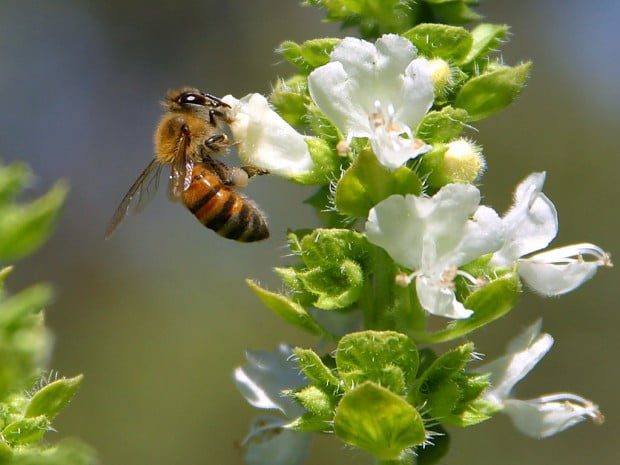This Thanksgiving I’m most grateful for our 1.8 trillion honeybees on earth: They provide us with the foods we eat, the cotton we wear, the beeswax we use, powerful medicines (Apis therapy) for fighting pain and their scrumptious and healthful honey.
For more information on all the incredible things honeybees do for us, check out this interview.
Over 2.65 billion pounds of honey are produced each year around the globe. Honey contains over 200 substances. Bees secrete a glucose oxidase enzyme that assists in converting nectar into honey. Along with oxygen, the glucose enzyme splits the glucose molecule into water and hydrogen peroxide. Due to its hydrogen peroxide and glucose oxidase content, honey is a powerful antiseptic. High amounts of malic, citric, tartaric, oxalic and other organic acids combined with the enzymes catalase and peroxidase give honey its renowned antibacterial properties.
The ancient Mayans revered the stingless honeybees, and a thousand-year-old document of theirs, the Madrid Codex, pictures shamans successfully treating cataracts, conjunctivitis, chills and fever with honey-based medicines. With its natural acidity and more than 80 percent sugar content, honey creates an inhospitable environment for the single-celled microbes that form infections. The low water content of honey keeps bacteria, which thrive in water, from flourishing. Ancient Greeks and Romans had also discovered these properties of honey; they used honey to treat cataracts and heal open wounds. Some modern bandage companies line their products with diluted traces of honey.
Suffering from yet another poor night’s sleep? Then how about trying some local beekeeper’s honey for a rejuvenating sleep!
Here’s why: Researchers found that a teaspoon or two of honey before bed ensures a restorative sleep. A human liver stores about eight hours of glycogen – an important brain food. If you eat supper at 7 p.m., by about 3 a.m. your brain releases a stress hormone called cortisol. Cortisol scavenges the body, melts muscle tissue and converts it into glycogen to feed the brain. When released, cortisol causes the heart to beat faster and raises glucose insulin levels in the blood.
Elevated cortisol can lead to obesity, diabetes, coronary disease and autoimmune breakdown. A teaspoon of honey at night fuels the liver with glucose and fructose, which is absorbed slowly – thus providing a restful sleep and preventing the release of cortisol. Honey’s low glycemicindex enables diabetics to also enjoy the reputed sleep benefits. Particularly, Floridian tupelo and New Zealand manuka honeys are best for diabetics. Children over the age of 2 can also benefit from honey, as it promotes learning and stimulates the area of developing tissue at the end of the long bones, called growth plates.
As the holidays approach, support our Malibu beekeepers by buying their honey.
Earth Dr Reese Halter is a broadcaster, writer and distinguished conservation biologist. His latest books are: “The Incomparable Honeybee” and “The Insatiable Bark Beetle.” Visit his blog at drreese.wordpress.com/

